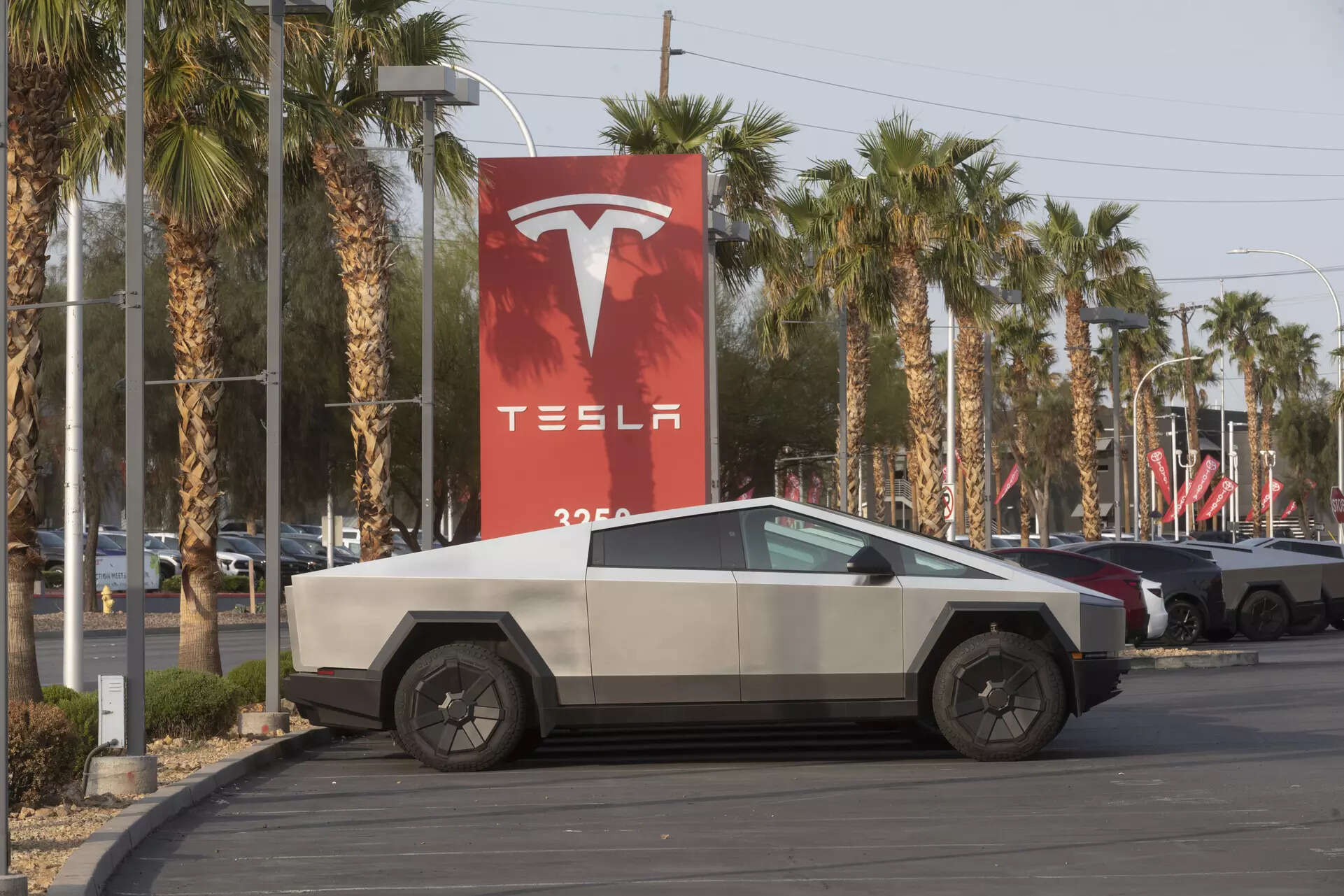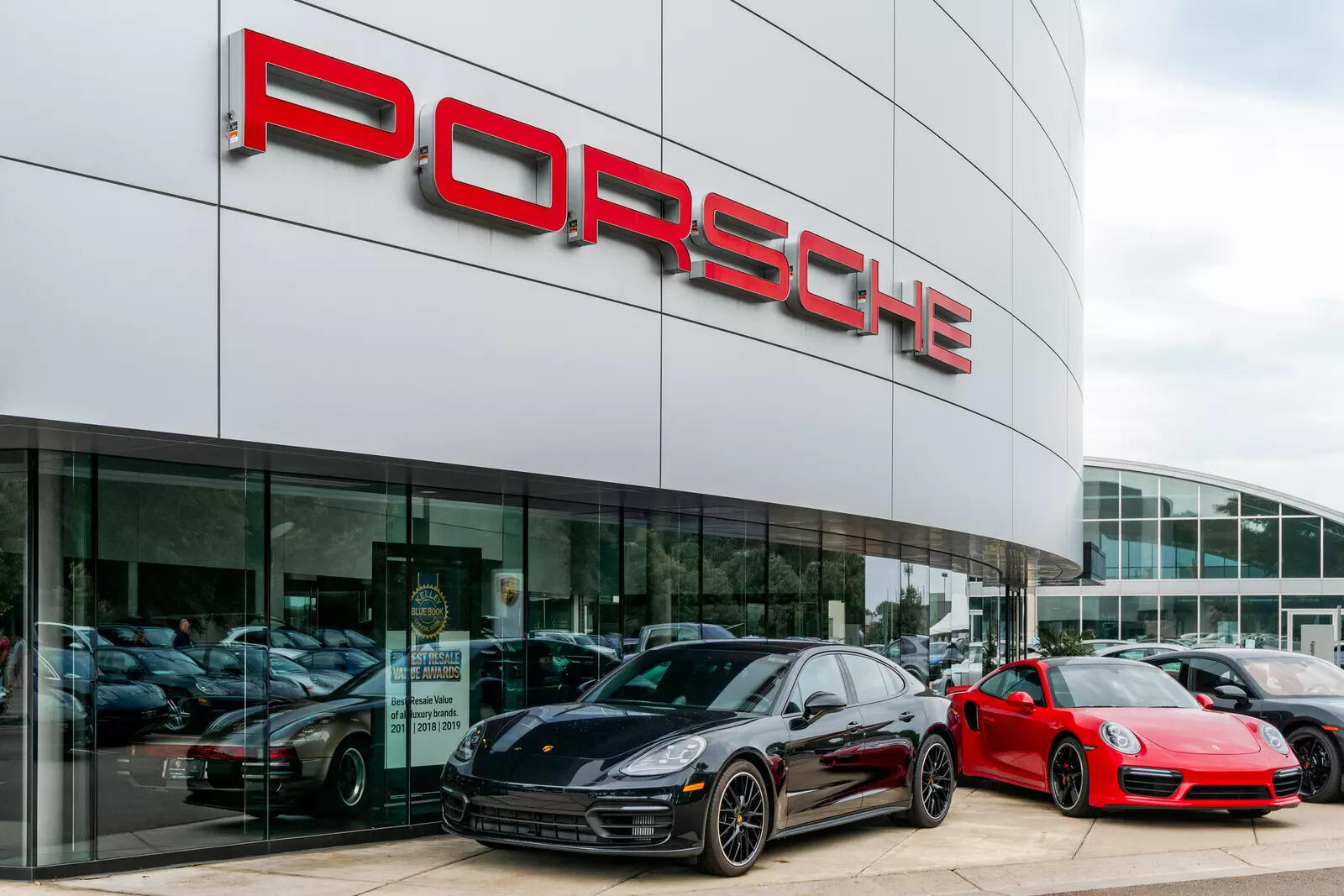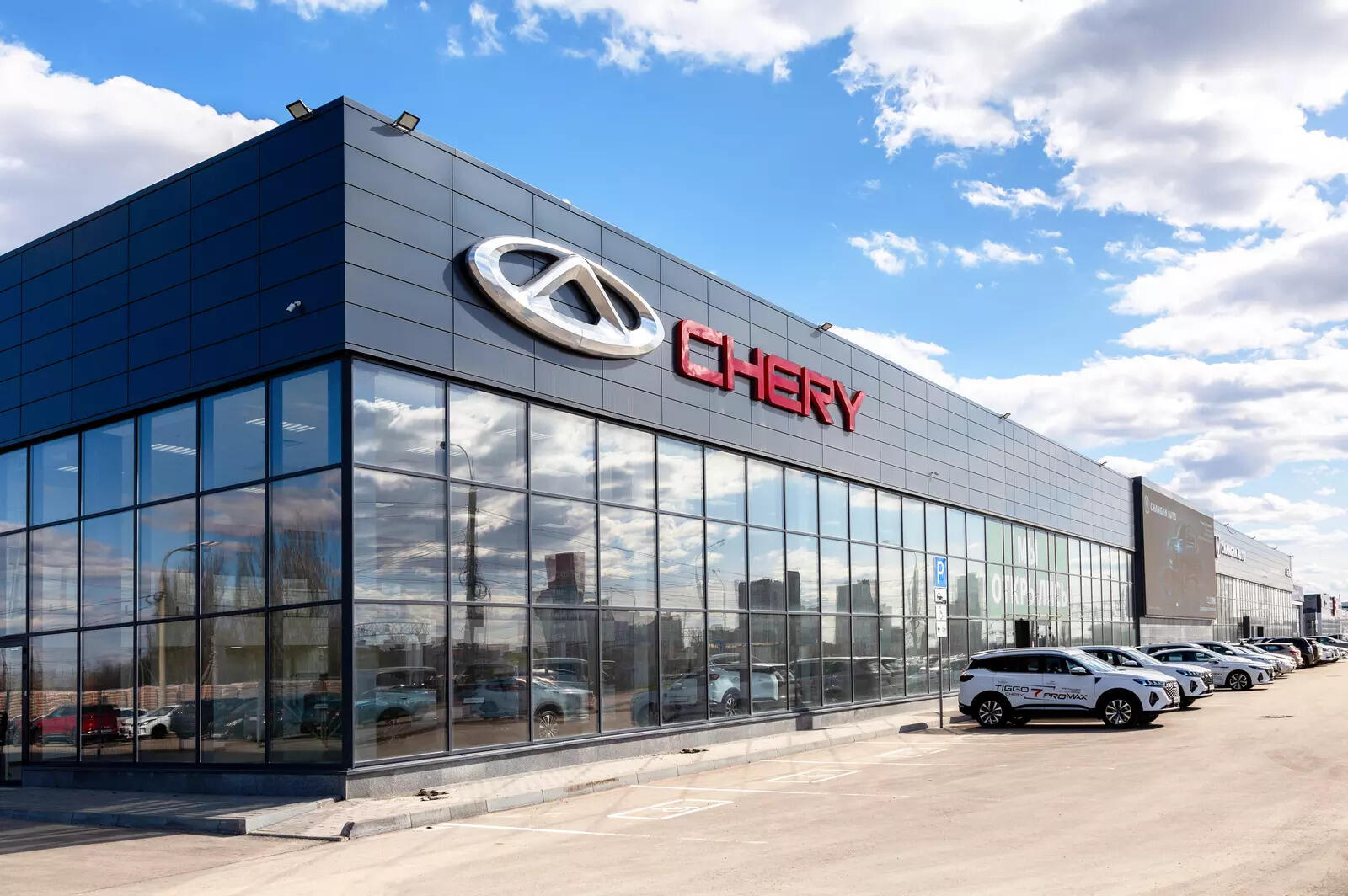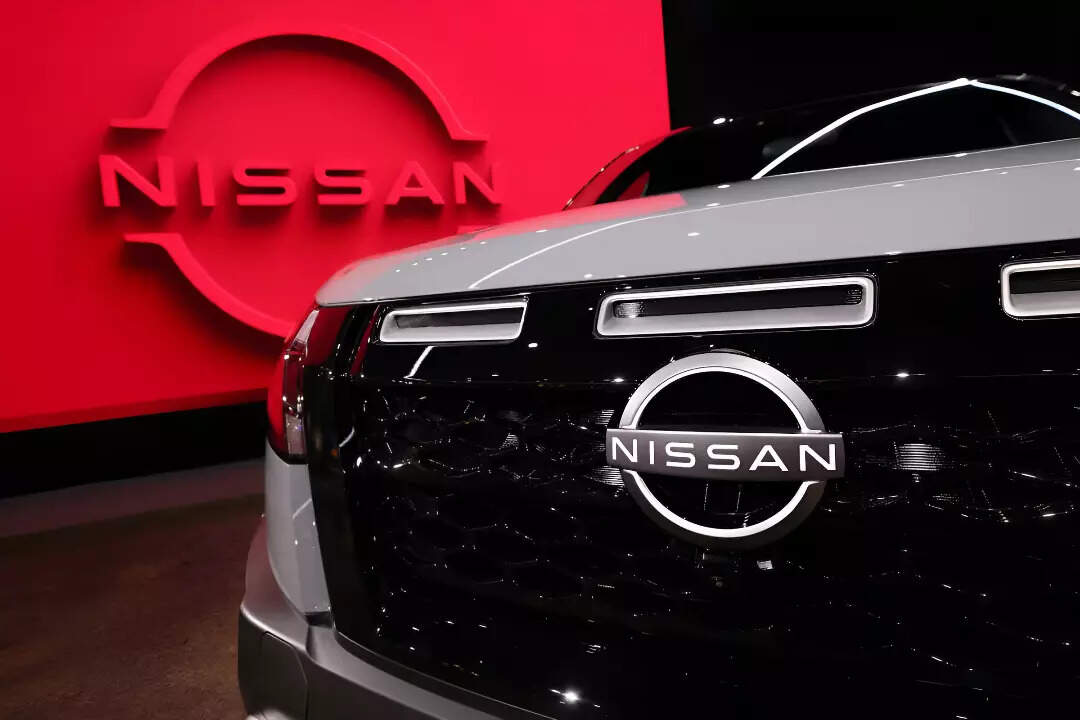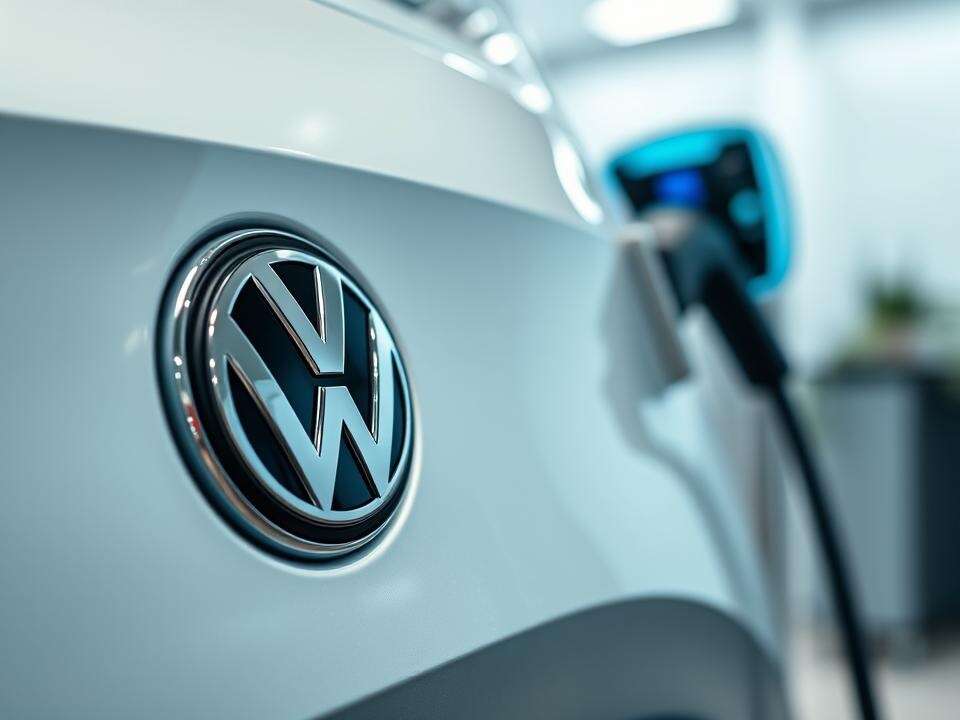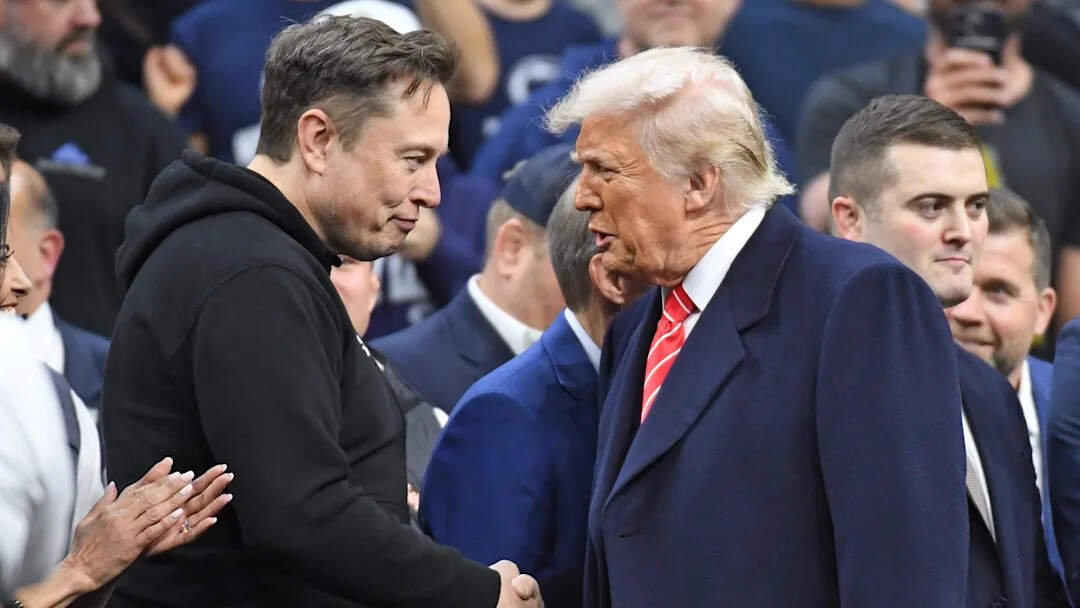
Tesla‘s troubles go far beyond tech mogul Elon Musk’s recent fallout with President Donald Trumpwho accused the former “first buddy” of going “completely ‘off the rails’” after Musk announced he is floating America party. Tesla has been facing massive challenges trying to get back on track after a disastrous first quarter.
While the battles between Musk and Trump are getting all the attention, the outlook for Tesla’s revenue and bottom line have gotten notably worse.
This week, Tesla shares fell approximately 7 percent after Elon Musk, electric vehicle company CEO, announced his plans on social media to form a new political party amid his ongoing feud with Trump. This decline cost the company 68 billion in a day to become the most significant single-day drop since June 5, when shares of Tesla dropped more than 14% in heavy trading as the public feud between CEO Elon Musk and Trump intensified. The company lost about $150 billion in value after Trump and Musk began their verbal war.
Musk stepped up criticism of the President Trump’s massive tax legislation in the recent months, while Trump alleged Musk was upset, opens new tab because the bill takes away tax benefits for electric vehicle purchases.
When Tesla faced vandalism
Musk was Trump’s largest financial supporter during the 2024 election campaign as he poured millions and millions of dollars to ensure his win against former Vice President Kamala Harris. Elon Musk was a mainstay at Mar-a-Lago and the White House at the start of Trump’s second term and he also bagged a role with Trump announcing a new watchdog- Department of Government Efficiency (DOGE) in slashing the federal workforce and cutting costs. DOGE cut hundreds of thousands of jobs since its inception in January, thus mounting the public anger.
The involvement of Elon Musk in politics previously affected raised concerns among Tesla investors. Tesla facilities across the US faced protests and vandalism in response to the political role Elon Musk, who owns the car manufacturer, played in the Trump administration. “Tesla takedown” protests raged across US and other Western countries owing to Musk’s proximity with Trump. Anti-Tesla campaigns saw a sharp rise with repeated attacks and vandalism across the globe. With Tesla’s global EV deliveries falling 13% last quarter, questions were being asked about Elon Musk’s forays into the political space and close association with President Trump.
Earlier this year, his close work with the Trump administration on the DOGE was seen by some as potentially damaging to Tesla’s brand image. In May, Musk exited DOGE a move that had a positive impact on Tesla’s stock. Tesla shares jumped after CEO Elon Musk said over the weekend that he plans to be “super focused” on his businesses and return to “spending 24/7 at work.”
Investors’ perception that Musk was overly focused on his work leading the U.S. government’s cost-cutting department, DOGE, instead of running the EV maker has dogged Tesla shares this year.
The situation remains more or less same now as Musk’s renewed involvement in politics is again causing concern among investors. Musk announced he was starting a new political party due to his displeasure with the tax and spending bill signed by Trump on Friday — and the barbs on their respective websites have only increased since then.
Shares of Tesla closed Monday down 6.8 percent and there was a concern among investors implication of Musk’s latest political moves. This came despite his promises to focus on the company.
“Very simply Musk diving deeper into politics and now trying to take on the Beltway establishment is exactly the opposite direction that Tesla investors/shareholders want him to take during this crucial period for the Tesla story,” wrote Dan Ives, an analyst at Wedbush Securities who’s known for being optimistic about the company.
Ives put out a follow-up note Tuesday saying that the Tesla board should set ground rules to limit Musk’s political activities because the company is at a “tipping point” for its future.
“Tesla is heading into one of the most important stages of its growth cycle with the autonomous and robotics future now on the doorstep and cannot have Musk spending more and more time creating a political party which will require countless time, energy, and political capital,” he wrote.
Analysts at William Blair downgraded their rating on Tesla stock to “market perform” (neutral) and slashed their earnings forecast for the company. In a note to investors, analysts Jed Dorsheimer and Mark Shooter highlighted that Trump’s proposed legislation not only eliminates the $7,500 tax credit for electric vehicle buyers but also scraps financial penalties for automakers that fail to meet federal emissions standards.
Those emissions fines had historically driven demand for “regulatory credits” — a lucrative revenue stream for Tesla, as traditional automakers were forced to buy credits from EV manufacturers to offset their own emissions. With the penalties gone, so is the incentive to buy those credits.
William Blair noted that Tesla has generated $10.6 billion in revenue from the sale of federal and state regulatory credits since 2019. This revenue was often the difference between profit and loss for the company. Without it, Tesla would not have reported a positive annual net income until 2021 — and would have slipped back into the red in Q1 of this year, when net income plunged 71% year-over-year due to slumping global sales.
Also, the company’s taxi service is limited in date launching only in AustinTexas. That puts Tesla behind the robotaxi service already offered in Austin and three other cities – San Francisco, Los Angeles and Phoenix.
Tesla’s robotaxi rollout has faced several hiccups, including one video showing a vehicle driving on the wrong side of the road for half a block, and another capturing a robotaxi slowly steering into a parked car.
Elon Musk has touted plans to expand the service to more cities soon, but he hasn’t provided specific timelines. It also remains unclear when the Austin pilot will open to the public or when the company will no longer require human monitors in the front passenger seat.
Tesla’s drop in sales
Tesla sales plunged nearly 50 percent in April in Europe, despite overall growth in the region’s EV market, as per data released in May by the European Automobile Manufacturers’ Association.
In Europe, sales plunged nearly 50% in April, despite overall growth in the region’s electric vehicle market, as per data released in May by the European Automobile Manufacturers’ Association. Global sales were down a record 13% in each of the first two quarters of this year, compared to a year earlier, even though demand for EVs overall continues to climb.
Tesla sales have seen a drop due to increased competition- both from Western and Chinese automakers as they have made a significant push into the market. Chinese automaker BYD is poised to surpass Tesla in global annual EV sales this year for the first time, even though Tesla is a still a major player in China, and BYDs are not sold in the US, reports replaces the word CNN with empty,.
Demand is expected to decline even more after October 1, when the $7,500 tax credit for electric vehicle buyers expires. When a similar incentive was phased out for Teslas in 2019, the company responded by slashing prices by nearly half the value of the discontinued credit.
But Tesla is facing hurdles due to Musk’s own wrongdoing. There has been backlash against Musk’s political activity, which has had a significant impact on Tesla sales. That is likely to continue even as he moves to distance himself from Trump.










